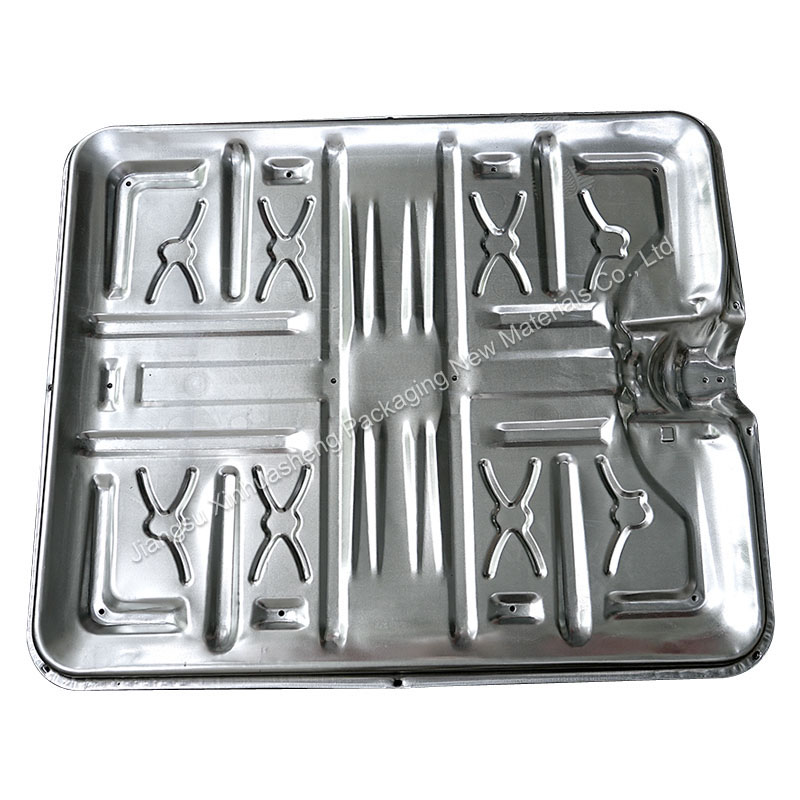What is a Metal IBC?
2024-12-17
An Intermediate Bulk Container (IBC) is a specialized packaging solution designed for the transportation and storage of liquid and bulk solid hazardous materials. Specifically, a metal IBC is constructed using metal alloys, providing a durable and reusable alternative to other types of IBCs. These containers are not only robust but also offer a range of benefits that make them ideal for various industrial applications.

Structure and Design
Metal IBCs are typically constructed from materials such as steel or aluminum alloys, ensuring high durability and resistance to environmental factors and physical impacts. They come in various sizes, usually ranging from 450 liters to 3000 liters, making them versatile for different types and volumes of materials.
One of the defining features of metal IBCs is their design, which often includes a one-piece, 1/2” sloped bottom. This design ensures complete drainage of the contents, preventing any residue from remaining in the container. The sloped bottom also facilitates easy cleaning and maintenance, which is crucial for maintaining hygiene and preventing contamination.
Stackability and Space Efficiency
Metal IBCs are designed to be stackable, allowing for efficient use of space during transportation and storage. This feature maximizes the capacity of trucks, ships, and warehouses, reducing transportation costs and environmental impact. The stackability also ensures that the containers can be easily managed and moved without the risk of damage.
Durability and Reusability
The use of metal alloys in the construction of these containers provides a high degree of durability. Metal IBCs can withstand extreme temperatures, pressures, and impacts, ensuring the safety and integrity of the contents. This durability also extends the lifespan of the containers, making them a cost-effective and environmentally friendly solution.
In addition to durability, metal IBCs are reusable. This reduces the need for disposable packaging, which can be harmful to the environment. With proper care and maintenance, metal IBCs can be used for multiple trips, significantly reducing waste and environmental footprint.
Compliance and Safety
Metal IBCs are designed to comply with international standards and regulations set by organizations such as the International Organization for Standardization (ISO) and the United Nations (UN). These containers are marked with information about the hazardous materials they contain, including the UN number, volume, manufacturer’s name, and date of manufacture. This information ensures that the containers are handled and transported safely, minimizing the risk of accidents and environmental damage.
Metal IBCs also undergo a series of performance tests to ensure their safety and reliability. These tests include static load capacity, dynamic impact resistance, leakage performance, and stability. These tests guarantee that the containers can withstand the rigors of transportation and storage without compromising the safety of the contents.
Applications
Metal IBCs are widely used in various industries, including chemicals, food and beverages, pharmaceuticals, and more. In the chemical industry, they are used for the transportation and storage of hazardous chemicals, ensuring the safe handling of these materials. In the food and beverage industry, metal IBCs are used for the packaging and transportation of ingredients, raw materials, and finished products. In the pharmaceutical industry, they are used for the storage and transportation of sensitive medications and vaccines.
In summary, a metal IBC is a versatile, durable, and reusable packaging solution for the transportation and storage of liquid and bulk solid hazardous materials. With their stackable design, high durability, and compliance with international standards, metal IBCs offer a range of benefits that make them an ideal choice for various industrial applications. Whether you are looking for a safe, efficient, and cost-effective solution for your liquid packaging, transportation, or storage needs, a metal IBC is a reliable option.



